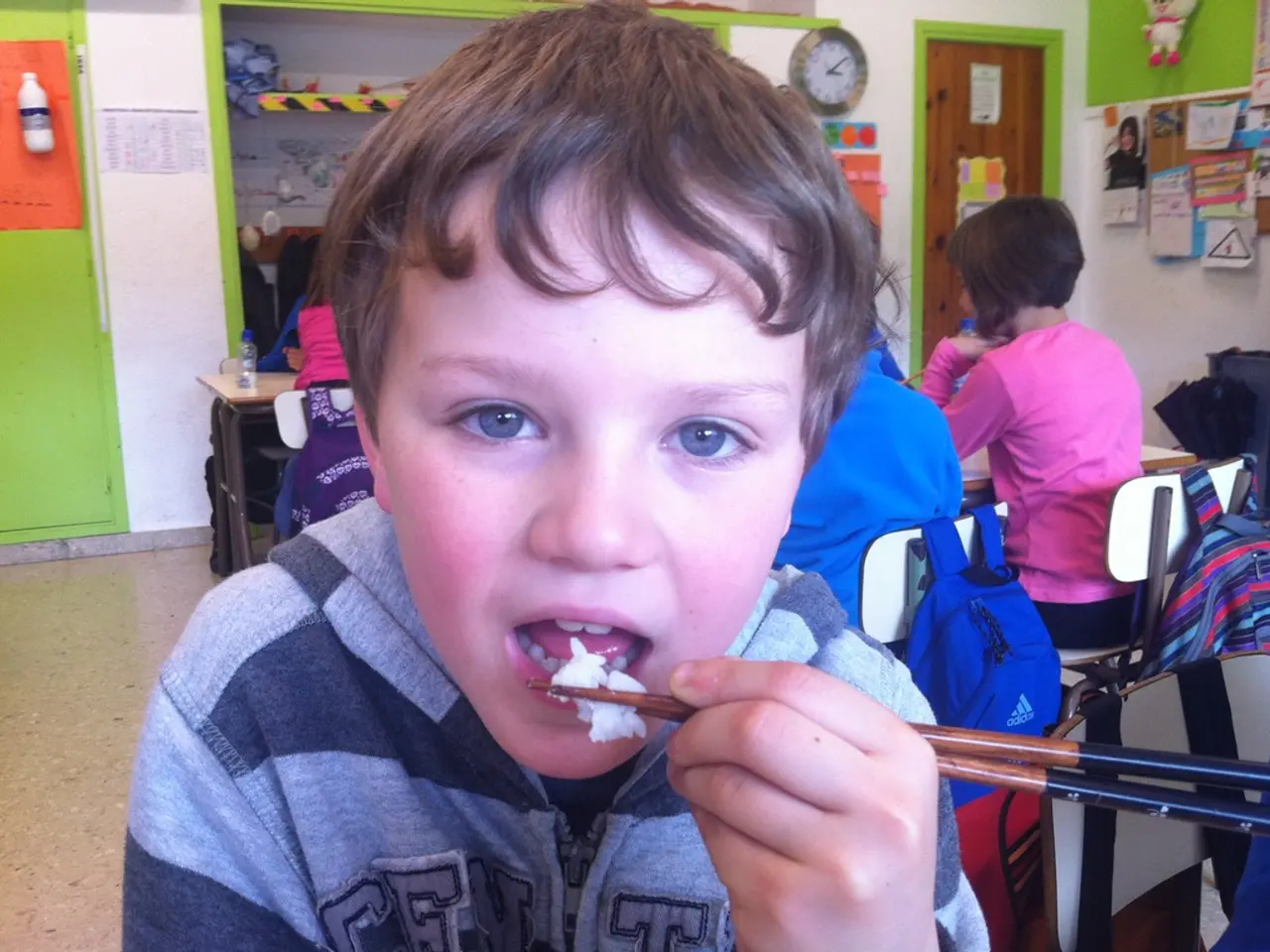Regulates schoolchildren's daytime schedule outlined by Rospotrebnadzor
School is just around the corner, and the local branch of Rospotrebnadzor in Khabarovsk has released guidelines to support the well-being and academic performance of schoolchildren. These recommendations cover daily routines, meal intervals, sleep requirements, and leisure activities.
Daily Routines
Establishing a regular schedule is key to supporting a child's biological clock. A consistent wake-up and bedtime should be set, considering age-appropriate daily sleep requirements. Mornings should begin with personal hygiene and light exercises to activate the body and mind. Balanced study and rest periods are essential, with breaks every 45-60 minutes to prevent fatigue. Outdoor activities are recommended daily for fresh air and sunlight.
Meal Intervals
Schoolchildren should aim to eat at least 4-5 times a day, with intervals between meals not exceeding 3.5-4 hours. A nutritious breakfast, a mid-morning snack, lunch, an afternoon snack, and dinner make up the daily meal schedule. Each meal should be balanced with adequate proteins, carbohydrates, fats, vitamins, and minerals.
Sleep Requirements
Recommended sleep duration varies by age. Children aged 6-12 years need 9-11 hours of sleep per night, while teenagers (12-18 years) should get 8-10 hours. A calm and dark sleeping environment should be ensured, and screen time should be limited at least an hour before bedtime to improve sleep quality.
Leisure Activities
Physical activities like sports, walking, or cycling for at least 1 hour per day are encouraged. Creative hobbies such as drawing, music, or reading should also be included. Passive activities like watching TV or playing computer games should be limited to less than 1-2 hours per day. Social interactions with family and peers are essential for a well-rounded lifestyle.
These recommendations aim to create a balanced lifestyle that supports physical health, cognitive development, and emotional well-being for schoolchildren. It is advisable to consult official publications from the Khabarovsk Rospotrebnadzor or contact their local offices for the most detailed and updated guidelines.
As the school year approaches, some children have already packed their backpacks, while others are still preparing for the new routine. With these guidelines in mind, let's ensure our children start the school year on the right foot.
Read also:
- Genetic Rarity Explored: Insights into Science, Struggles, and Misconceptions Surrounding Albinism
- Smoking Secondhand: Impact, Frequently Asked Questions, and Additional Information
- Strategies for Mitigating Negative Feelings in Customer Interaction with Your Goods or Services
- Pregnancy, according to the Bible, is defined as a state in which a woman carries a developing child in her womb.








